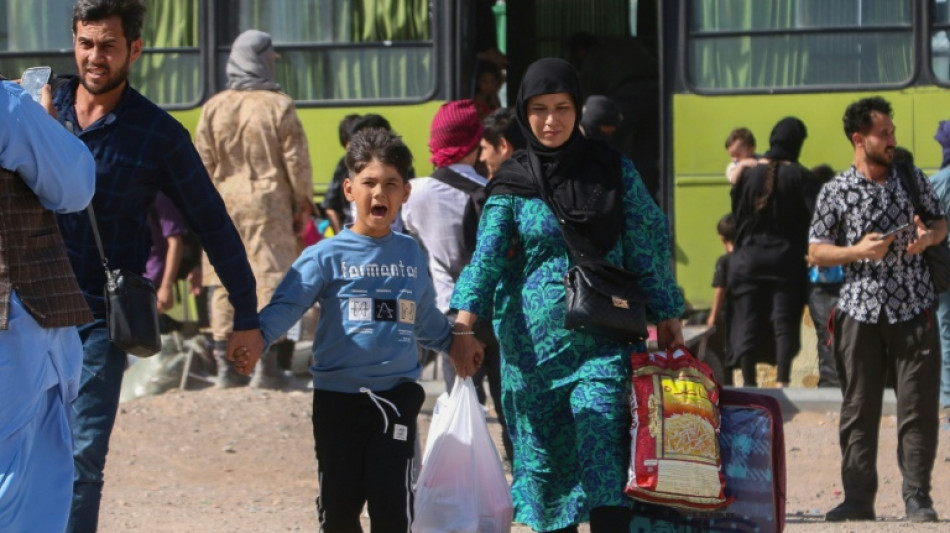

UN says Taliban committing 'rights violations' against Afghan returnees
The United Nations said Thursday that Taliban authorities were committing human rights violations, including torture and arbitrary detention, against Afghans forced to return by Iran and Pakistan.
Large-scale deportation campaigns launched by Iran and Pakistan have forced millions of Afghans to return to Afghanistan, including more than 1.9 million people so far in 2025, the overwhelming majority from Iran.
"People returning to the country who were at particular risk of reprisals and other human rights violations by the de facto (Taliban) authorities were women and girls, individuals affiliated with the former government and its security forces, media workers and civil society," the UN said in a statement accompanying the release of the report.
"These violations have included torture and ill-treatment, arbitrary arrest and detention, and threats to personal security."
The UN's refugee agency (UNHCR) recently estimated that up to three million people could return to Afghanistan in 2025, to a country facing a severe humanitarian crisis.
The report by the UN Assistance Mission in Afghanistan and the UN Human Rights Office was based on interviews with 49 returned Afghans.
It said violations have been committed against Afghans "based on their specific profile", including women, media workers, and members of civil society, as well as individuals affiliated with the former foreign-backed government that fell in 2021.
The Taliban government has previously denied allegations of abuse, having declared an amnesty against those who worked for NATO forces and the former government during their two-decade conflict against the Taliban's insurgency.
"Nobody should be sent back to a country where they face risk of persecution on account of their identity or personal history," UN rights chief Volker Turk said in a statement earlier this month.
"In Afghanistan, this is even more pronounced for women and girls, who are subjected to a range of measures that amount to persecution on the basis of their gender alone," he added.
- 'Gender apartheid' -
Over the past four years, women have been increasingly isolated from public life by the Taliban authorities, which have banned them from universities, public parks, gyms and beauty salons, in what the UN has denounced as "gender apartheid".
The Taliban government says that their interpretation of Islamic law "guarantees" everyone's rights and that allegations of discrimination are "unfounded".
Russia is the only country that has recognised the Taliban government since it seized power in 2021 following the withdrawal of foreign troops from the country.
Neighbouring Tajikistan has followed Islamabad and Tehran's example by announcing its intention to expel Afghans.
Since July 8, at least 377 have been deported, the UNHCR told AFP.
Germany, meanwhile, deported 81 Afghan men last week who had committed crimes and United States announced it would revoke the temporary protection status for thousands of Afghans.
According to the UN, the recent increase in number of returnees has created a 'multi-layered human rights crisis' and the organisation called last week for an "immediate halt" to forcible returns.
B.Kealoha--HStB






